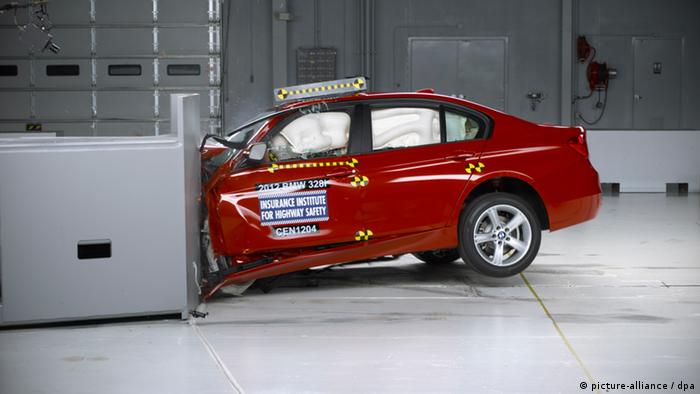Gloomy figures from Daimler, declines in production and sales in the entire German car industry. What is going on in Germany’s flagship industry? Questions to ask the auto expert Stefan Bratzel.

On all of the relevant markets, the German automaker reported Bauer sales declines. Daimler has made in the last week, the second profit warning of the year and the suppliers complain about the ever-thinning air in the car business. Stefan Bratzel, Director of the independent Center of Automotive Management at the University of applied Sciences in Bergisch Gladbach and observed the industry for many years.
DW: Mr Bratzel, belies the impression that it’s not about the German car industry at the moment is not good?
Stefan Bratzel: The impression is not misleading, unfortunately. The German car industry has enormous economic problems, they reported Sales declines and declines in production. It is not only the German car industry. What was a little bit in the last few months outside of the public perception that in the last year, production in Germany, nine percent had decreased, and in the first half of the year, even was two digits with twelve percent in the Minus. So we have currently a bigger problem in the automotive industry.
Now, the switch to electro-mobility seems to be the theme of the day. It is actually this point that is of concern to the auto industry the most?
Yes. If we actually look in the future, we benefit from the Transformation view, the issue of electric mobility is certainly what concerns me the most, what the most money, and where groups differ in their Performance. BMW had in fact, at least among the German manufacturers a head-start on the topic of electric mobility. But one must say clearly: it was playful in the last few years, because there was a certain reluctance in the case of BMW, like you wanted to make more progress. This BMW has fallen back. Other German manufacturers such as Volkswagen, but also Daimler, have now pulled at least with BMW the same.
This new beginning, this change in Technology, needs, above all, money. If we look now to the example at Volkswagen, we must say that The have spent in the last few years, a lot of money, namely EUR 30 billion due to the diesel scandal. The car manufacturers have even enough money for such an adventure?
It is not only the topic of electric mobility, it process in this transformation to Autonomous Driving and services around the mobility. It costs a lot of money and you also have to know that the Return on investment is expected in a couple of years, if all goes well. It is a risk Management and, in fact, all of the manufacturers do not have enough money to live the topic of electric mobility, drive like VW with such vehemence. Therefore, it will be for the foreseeable future collaborations, in the field of electric mobility. Much like we have seen recently.
You have to aim on the recent agreement between Volkswagen and Ford in the field of electro-mobility and Autonomous Driving. Now the electric parts of the engine dramatically less individual than a nitro. Could the production of this new drive is also a lot of jobs forms cost?
That is completely correct. And as you can the people fool. The Transformation from the internal combustion engine to the electric car will cost jobs. We expect that in Germany up to the year 2030 in the order of 15 to 20 percent of the jobs in the industry will be lost. This is certainly a subject that needs to be cushioned perhaps even social, because we have to do it here with in the worst case, hundreds of thousands of jobs that will go away.
It is against this Background, a clever strategy of VW to put in the Transformation almost exclusively on battery-powered vehicles and to leave the fuel cell of the competition?
I think that first of all, it is quite reasonable to say: We must now promote the use of the battery in electric mobility and where the forces focus. Because the other technologies, such as fuel cell, is only in the second half of the decade so far that you can sell considerable quantities. But it is also true: It is a bet on the future that relies so intensely on pure electric mobility and it is also not without risk, because Volkswagen can provide not alone for the environment and, particularly, of charging infrastructure. There is also the help of the state, and perhaps also of other actors is necessary in order for as many electric vehicles can be sold as Volkswagen even hoped for.
Given the challenges of the future through digitization and E-mobility: what are the German manufacturers, especially in comparison to the competition in the United States and in China?
The German manufacturers, need to catch up in the field of electric mobility arrears to one or the other Player. This applies, for example to Tesla. This also applies to some Chinese manufacturers, which are already intensively working. But I think you can also say: The residues can be well caught up. You have to take care of this issue now more intense. It is somewhat different, perhaps, on the subject of digitisation and the Connected Car. Here, the topic of Software plays a very important role, something that the German car manufacturers can’t, at least so far, very good. Here are a few residues need to be caught up.